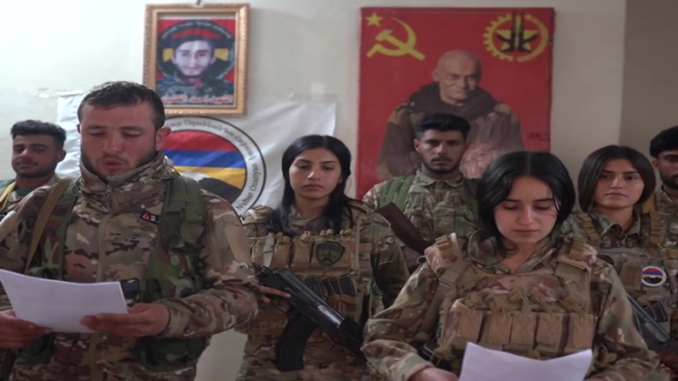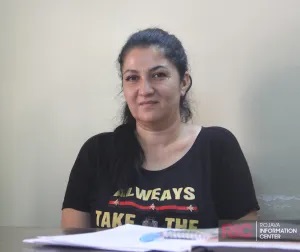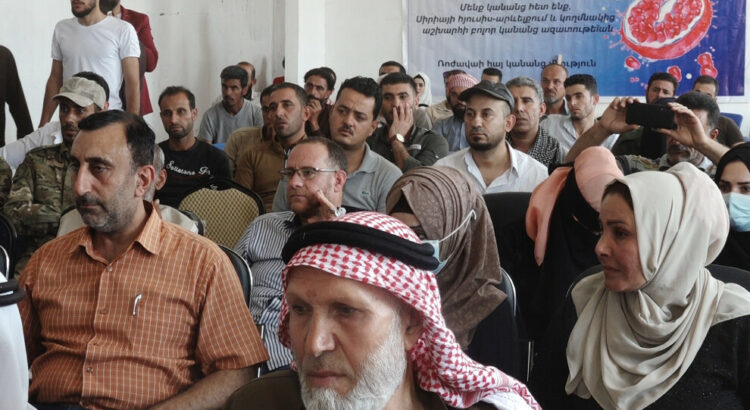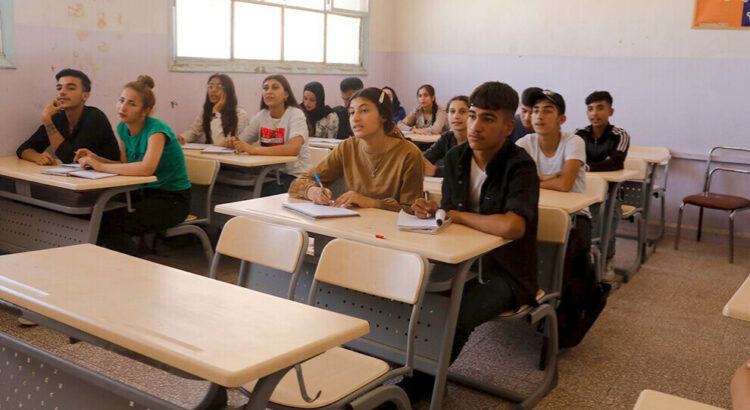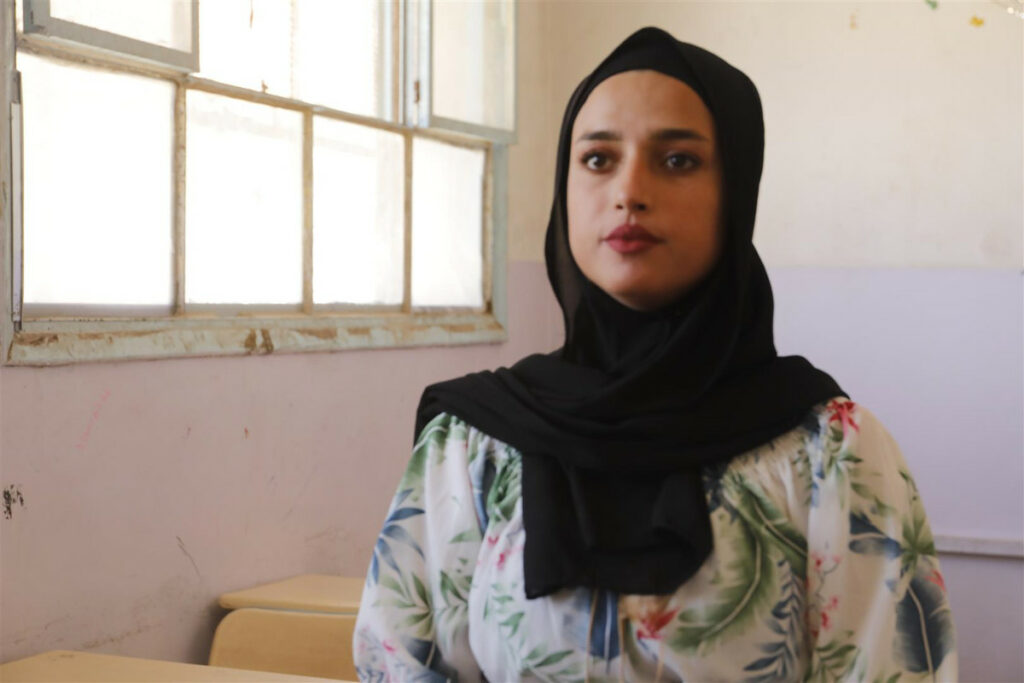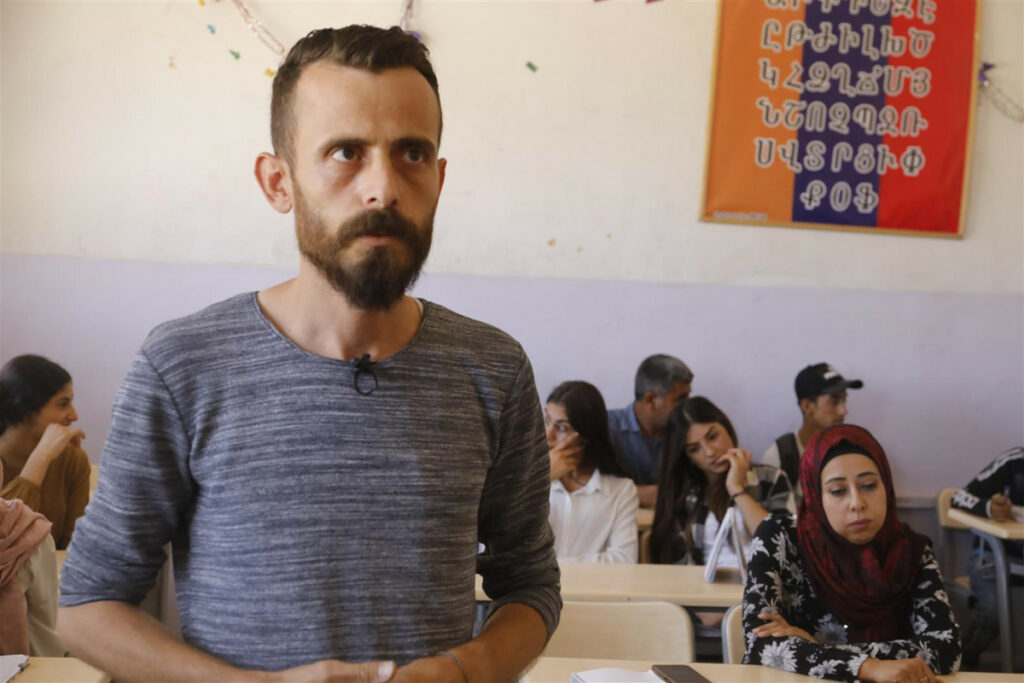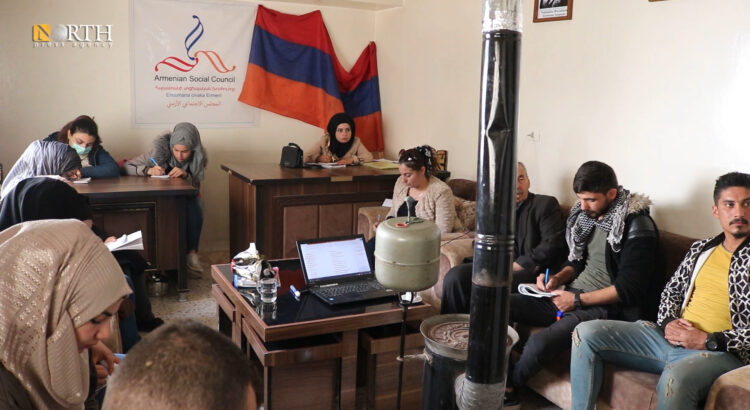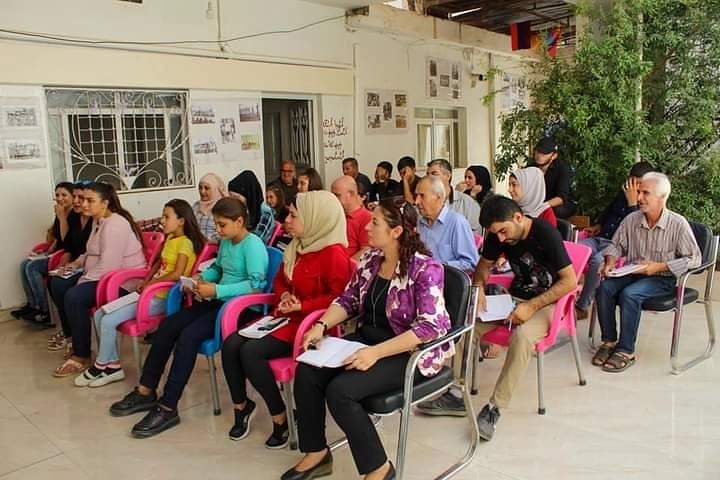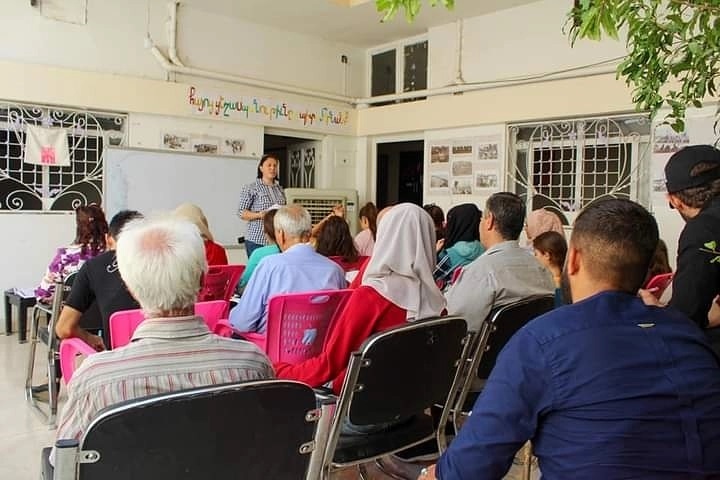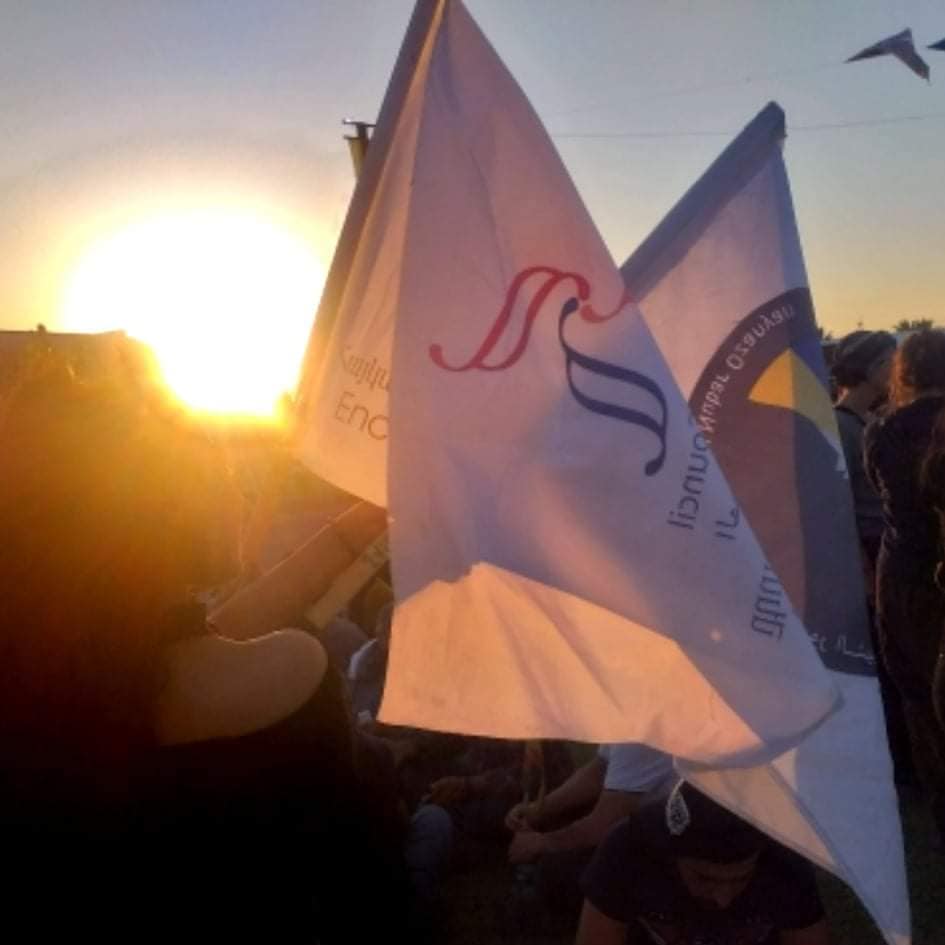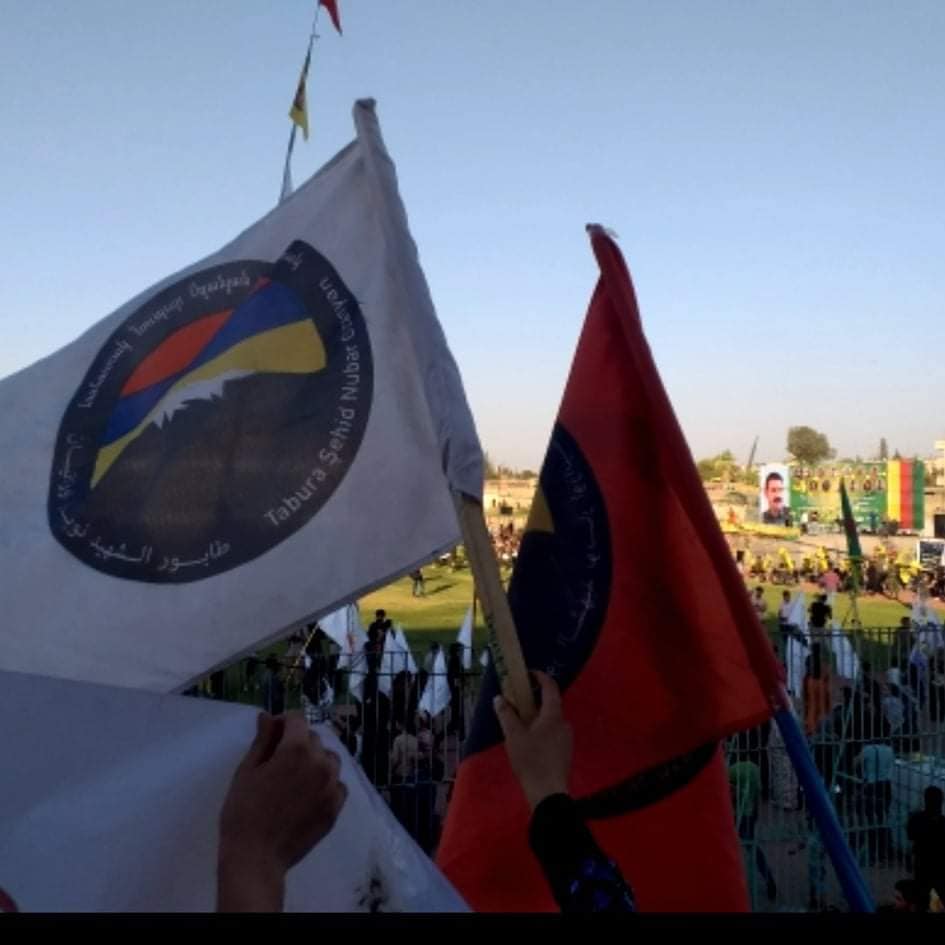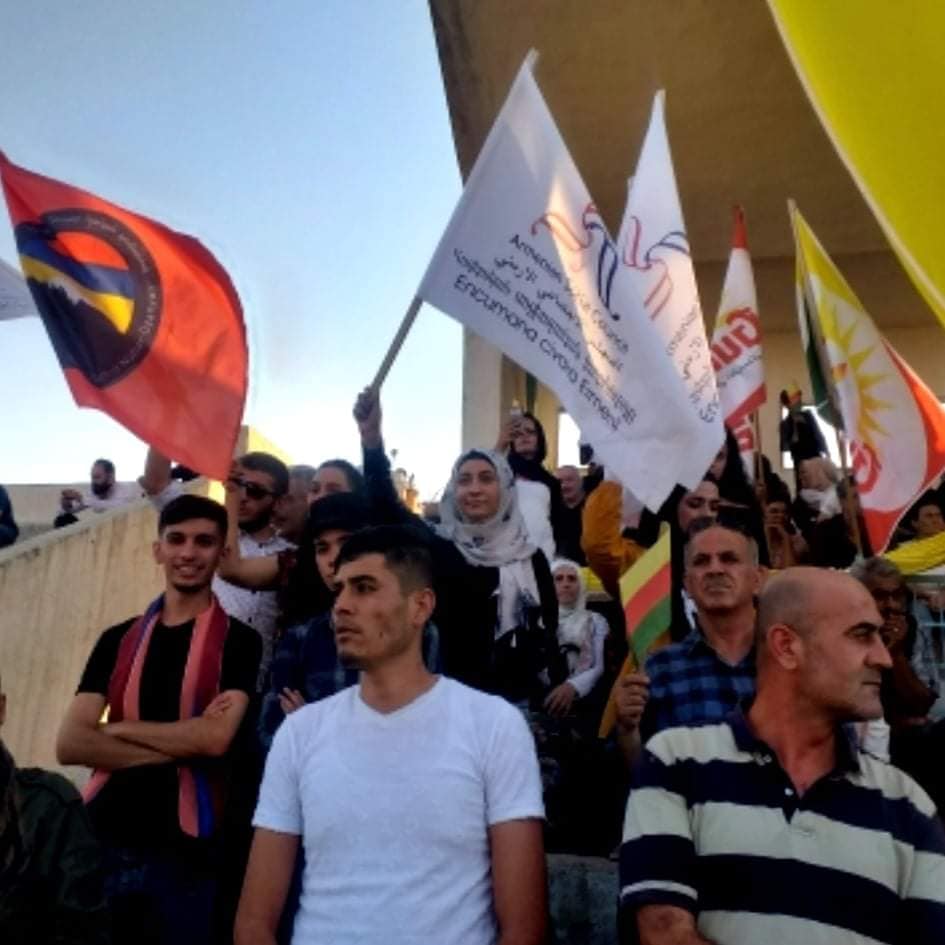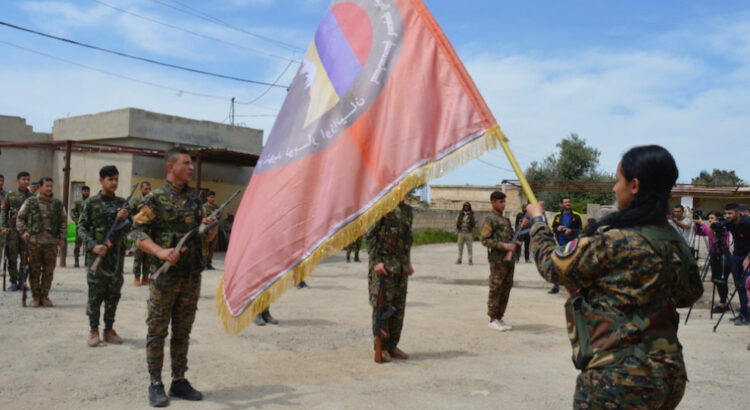We are a Brigade established to defend our lands and people in Northern and Eastern Syria, as well as to keep our Armenian identity and culture alive. As a military and revolutionary institution, it is our most important duty to commemorate our martyrs. As the Nubar Ozanyan Brigade, we declare the last week of January every year as Martyrs’ Week.
For this purpose, we respectfully commemorate all revolutionaries, communists, commanders and fighters who sacrificed their lives for the liberation of humanity, for the defense of their lands against imperialist and fascist attacks and who were martyred for this cause. The path they walked is our path.
Communists and revolutionaries who struggle for the liberation of all humanity are fighting against imperialism, feudalism, patriarchy and capitalist barbarism. They have not hesitated to sacrifice their lives against all injustices, wherever they are in the world. Comrades Rosa Luxemburg, Karl Liebknecht and Lenin, who were martryred in January, illuminated the parth of humanity against the imperialist capitalist order. Lenin, the leader of the October Revolution, proved that workers and laborers can have their own state. In this sense he is a great leader. At the same time, Meral Yakar and Ali Haydar Yıldız are the first martyrs of the Proletarian Party and were martyred this month. On the occasion of the Martyrs’ Week, we say that we follow their path and commemorate all communist leaders with respect.
The revolutionaries who fought for the freedom of oppressed nations have left us a great legacy in the defense of our homeland. In this sense, we commemorate Omar Mukhtar, who was a great symbol for the Libyan people, Georg Habbash (Al Hakim) who fought for the freedom of the Palestinian people throughout his life, Leyla Kasım, Sakine Cansız, Mazlum Doğan and Haki Karer who sacrificed their lives for the national freedom of Kurdistan. The struggle of oppressed nations against the oppression of imperialism and the attacks of fascism is just and legimate.
The Rojava Revolution was achieved after a great war. This revolution created a great opportunity for the coexistence of peoples. It created an opportunity for the liberation of women. For this purpose, we commemorate with great respect and gratitude our great commander Nubar Ozanyan, who came to Rojava to protect our people and fight against ISIS. In the person of our comrade Lorenzo Orsetti, who was martyred in this land with an internationalist spirit, all international fighters are a light on our path.
At the cost of the lives and blood of nearly 12 thousand fighters who sacrificed their lives for the freedom of Northern and Eastrern Syria, for the Rojava Revolution, ISIS was defeated and the Rojava Revolution could be realized. ISIS reaction still continues to be a danger. In this sense, our war against fascism and reaction still continues. One year ago, 121 of our friends were martyred in the Xweyran/Al Hasakeh attack. As a brigade, we martyred our comrade Oskan Bagiryan while defending our lands. Again, we commemorate with respect the martyred sons of the Armenian people in the person of comrade Dijwar, who martyred in the defense of these lands before the establishment of our brigade.
We promise our martyrs! We will defend the gains of the Rojava Revolution. We will continue to protect our people.
As the Armenian people, we have lived under harsh conditions in history. We have been subjected to great genocides. We have not forgotten our people who were subjected to genocide 107 years ago. May their souls rest in peace. Since then, we will not forget our great Armenian commanders, Andranik Ozanyan, Kevork Sergeant, Monte Melkonian, Leonid Azgaldyan, Levon Ekmekchian etc. who waged struggle with great sacrifices. Again, historically, Armenian revolutionaries who fought for the Armenian people and all oppressed people are an example for us. We remember Zabel Yeseyan, Anahit Aghabegyan, Zarouhi Kavaljan, Shushanik Kurgunyan, Hayrabet Honca, Armenak Bakır, Manuel Demir, Nubar Yalımyan with respect. We will never forget Hrant Dink, who enlightened our path with his works on Muslim Armenians and was murdered by Turkish fascism. Today, the Armenian people are defending themselves in Artsakh against the joint attacks of the Turkish and Azerbaijani states and are martyred. Anush Apikyan was brutally murdered against these fascist attacks. Anush Apikyan is a role model for Armenian women fighters.
The revolutionary life of our Nubar Ozanyan was decisive in the formation of us as a brigade. It is of course his revolutionary and communist line that brought him to Northern and Eastern Syria. The Party of the Proletariat shaped Commander Nubar. Thanks to the steps taken by leader Ibrahim Kaypakkaya, the founder and leader of this Party, the revolutionary struggle in Turkey has experienced a great breakthrough. Leader Kaypakkaya inflicted a great defeat on fascism with his ideology, thoughts and revolutionary practice. As the Brigade, we take Comrade Kaypakkaya as a guide in our struggle against fascism and reaction. Thanks to him, we can analyze the enemy better. We are more determined in our struggle. On the occasion of the 50th anniversary of the murder of Leader Kaypakkaya, we commemorate him with respect and gratitude. He is our torch.
Our martyrs to illuminate the path we walk!
Martyrs of the revolution are immortal!
We will never forget them.
Nubar Ozanyan Brigade
25.01.2023
